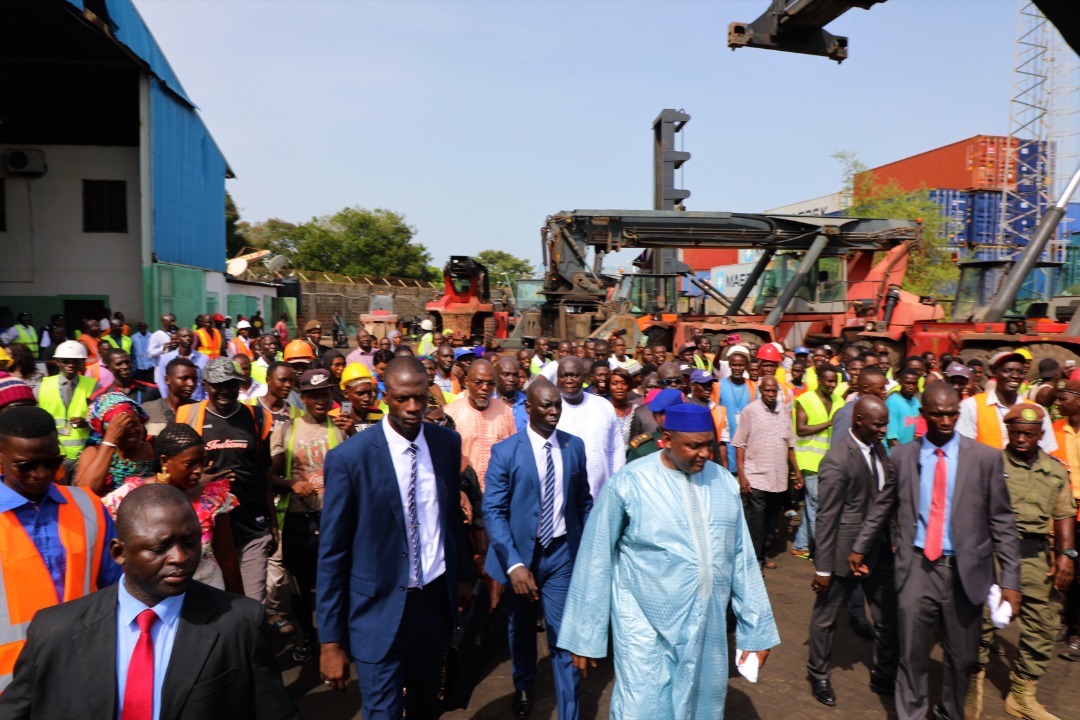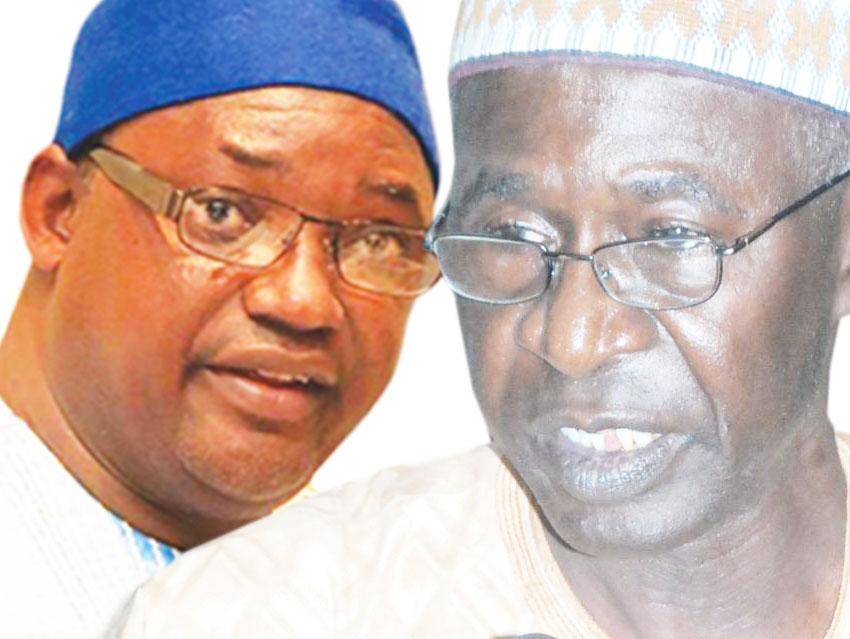The management of Gambia Ports Authority have informed Gambian leader Adama Barrow that business activities at the Banjul seaport has grown from the projected 7 percent in 2016 to 20 percent in the last quarter of 2019.
The seaport is one of The Gambia’s most important and valuable assets and employs thousands both formally and informally. Its location on the Atlantic Coast and in West Africa makes it even more strategic and convenient for businesses, both in and outside of the country, to ship in goods for domestic trade or re-exportation to sub-regional markets. With the right enabling policy environment created by the Barrow government since 2017, the volume of business transactions has nearly tripled leading to cargo ships waiting in line to dock for eight days.
In an unannounced visit to the port today Thursday, President Barrow visit was to see the situation of the port and gather firsthand information on how to address the bottlenecks.
“I have been having reports from the management of the ports and technicians in the ministry of works about the situation at the GPA. I therefore take the initiative to come… I think it is a blessing for The Gambia that everyone is coming and we need to maintain that through expansion of the ports”, President Barrow said.
Following the tour of facilities, President Barrow said he had observed a lot of challenges that require the attention of the GPA management and the government to devised innovative ideas on how best to remedy the situation. “This is because if people have confidence in you, you should match that confidence so that you can maintain them as customers,” President Barrow said.
The conducted tour also took him to the affiliated institutions of the ports authority such as the Banjul Shipyard, the ferries as well as the container terminals at the sea port and the dry harbor on Bond Road.
Given the strategic importance of the Banjul Seaport, the president said the government is opened to partnerships to expand its capacity to be able to compete with neighbouring entities in West Africa.
“Already, there are a lot of sea ports around the world [that] are interested in such partnerships with The Gambia. We have faced an urgent situation and we need to take urgent decision. That is our thinking. So, I have talked with the Managing Director of the GPA; we will have a round table meeting bringing together technicians, port’s management, the minister, and the politicians to sit around the table and see what we can do in the short term and in the long term,” he explained.
President Barrow engaged the port’s management on the state of the ferry services. According to the information provided, the current landing site for the ferries, which has seriously worn out, was constructed in the 1970s through German government cooperation.
“I held talks with the Managing Director about the landing site and they have already awarded the contract for the complete overhaul and construction of a new landing facility for the ferries. This was presenting the biggest problem but now the management has taken action because it is urgent and they had to take loan from the commercial banks to help speed up the construction,” President Barrow revealed.
The new facility will help ease the congestion experienced at the ports. However, the government’s thinking for a permanent solution is to have a bridge over Banjul-Barra crossing.
In the meantime, the president advised the ports authorities to begin a 24-hour operation at the Farafeni Bridge in the North Bank Region at the earliest possible time: ‘’They are currently operating up to 12 midnight because they are running on generators.
I have asked them to extend the electricity supply from Farafenni which is more realistic and you can have 24hours service. The night service is infrequent because travelers know you close at 12midninght. Once that begins, customers will travel 24hours over the bridge”.
GPA’s managing Director, Mr. Ousman Jobarteh described seeing the President at his institution as “a turn from the top.” He said it shows commitment from the highest level, and the staff and management are more than motivated. “It’s a sign of commitment that government is very serious about the ports. We will take urgent measures to address and maximise the potentials for growth,” he said.




